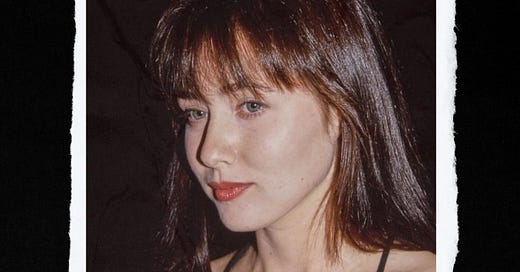After sharing my story about struggling to get a cancer diagnosis,(part 1, part 2) I started getting DMs from people with the same experience. Women whom doctors didn’t believe, and who had to fight to be heard. I also got DMs from women about the friends they lost, people who were not diagnosed in time. One woman told me of her friend who was bleeding post pregnancy and doctors brushed it off as normal. It turns out it was colorectal cancer and it wasn’t caught in time. She died a mom with a young toddler.
I had to keep going and going to endocrinologists to find someone who believed me that I was sick. I have a lifetime of lessons that when someone tells you no, you are supposed to accept that as fact. As a woman, I have been socially conditioned to feel that repeatedly asking for what I want or need is nagging or being difficult. It’s a lesson one learns through experience, the constant response of admonishment when you are too loud, too strong, too much. Being labeled as difficult pushes you to be silent next time.
For a long time I had deeply internalized this idea of needing to be quiet. People always say I’m “too talkative” and early in my career I would time how long I spoke during a meeting, to prove to myself that I was in fact less talkative than others. In fact, I was just a woman who was speaking.
When I started working side by side with men, I learned how different things were for them. A lifetime of being called a boss not a bitch had molded them into people who would just keep asking. Who disregarded rules and asked questions repeatedly.
“The worst someone can say is no!” I’ve heard this all my life, but had always thought - not really! They can do a lot more … they can push you aside on projects, stigmatize you as ‘difficult’ for the rest of your career and more.
The news of Shannen Doherty’s death from cancer hit me hard this week. It wasn’t just the shared symptoms and the reminder that my own cancer journey is far from over that did it. It was so much more.
Shannen was an icon for me and an inspiration, as she was for so many of you.
Shannen Doherty was a queen of the 90’s and a paragon of the so-called ‘difficult woman.’ In an opinion piece We Owe Shannen Doherty an Apology the author Jennifer Weiner wrote: “Ms. Doherty said the first time she was called a bitch was when she called out a male cast member on the set of “Heathers” for taking advantage of an extra. “I’m a strong woman,” Ms. Doherty told People. “There are still some people out there who can’t deal with that.”
It happened to Shannen over and over again throughout her career. She was labeled the difficult one because she dared to speak out and speak up.
Social pressure to be silent, to be a good woman, to not be bothersome, to not talk politics, to be a cool girl and laugh at sexist jokes - it all adds up to making life better for the people who want to make our lives worse.
Reports say that Shannen had a delayed breast cancer diagnosis because her manager stopped paying her insurance premiums. My cancer has already spread to my lymph nodes and I wonder, if I had been more aggressive with doctors - could I have caught it sooner?
If I had been more difficult would I have already been feeling myself again?
I won’t be quiet any more. None of us should be. After watching the RNC this week I know that we are in a battle. We will have to speak up loudly and often. We will be called difficult, but we should wear it as a badge of honor.





I don’t know where to begin so I’ll start with thank you. Thank you for sharing the gift of your insight and writing to open us up to being stronger, better advocates for ourselves and all women. At 55, for years I have felt rage and powerlessness. As a gen xer, I have been who I was raised to be. No more. For however long I have left, I will refuse to bow down.
I see you, Emily. I see your strength and courage. I see your struggle.
With admiration from Ohio. Elizabeth
Thank you for sharing your story and for all you do. Grateful for your work and how it’s encouraging me to find my own voice and speak out.
Completely agree with your essay on Shannen and what you said about social conditioning. I think it’s a cumulative impact from our own experiences being put down and then stories of others and the labels put on them. I remember loving Shannen on 90210 and then years later hearing reports she was “difficult” and admit I believed it without digging deeper or learning more about who profits from that narrative.
Now with more age, experience and learning I know to always question that narrative and that we all have to advocate for ourselves all the time, and especially with our health care. It’s advocating and also working for better more equitable systems in the future. Because we don’t deserve to live this way!!!!